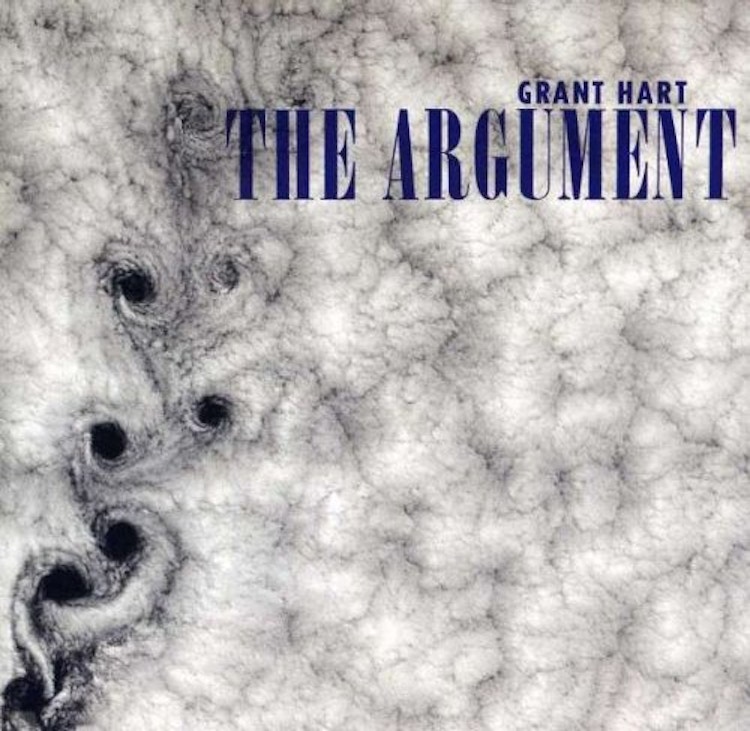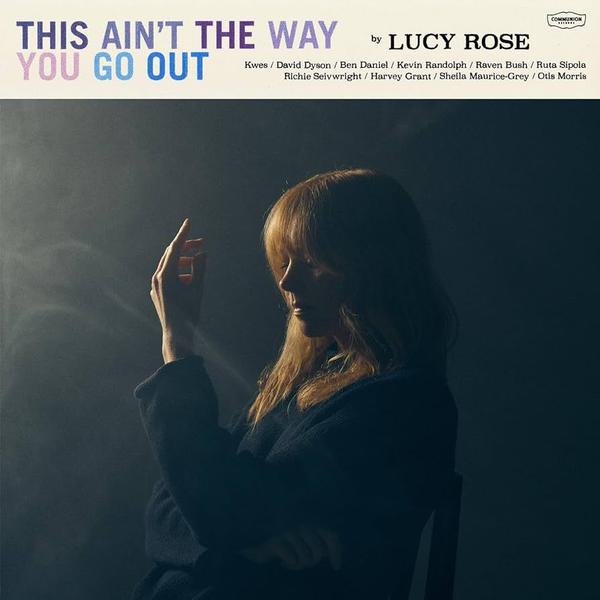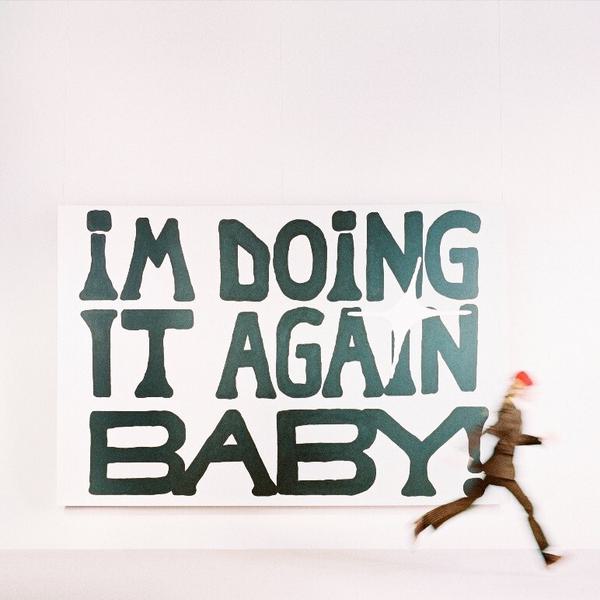"The Argument"

Filtering John Milton’s epic 17th century poem, Paradise Lost, through the twisted, sci-fi scope of William S. Burroughs, can be a challenge daunting enough for even well-versed, pipe smoking literary scholars, to say nothing of your typical musician. But throughout Grant Hart’s long musical career, from his groundbreaking days as one-half of Hüsker Dü’s seminal songwriting team alongside Bob Mould, to his experimental solo efforts of the past few decades, through his inventive but often overlooked work with Nova Mob, Hart has repeatedly proven that he isn’t your typical musician.
And with his fourth solo studio full-length, The Argument, Hart uses both Milton and Burroughs (whose unpublished, Milton-indebted manuscript, Lost Paradise, also informs these new batch of songs) imaginative, timeless interpretations about the fall of man as inspiration for a sprawling double-album that represents the artist’s most ambitious musical achievement since 1984′s Zen Arcade. And while Hart’s artistic reach occasionally exceeds his grasp throughout these 20 imaginative new tracks — just as it did periodically on Hüsker Dü’s classic second LP — the sheer scope of what he’s trying to achieve and communicate with this vibrant but rather dense material is enough to make a listener see past the sporadic flaws in search of a deeper meaning within both the music and the narrative layered throughout the record.
The Argument is divided into two equal halves, with the first section focusing on Satan and the other fallen angels being banished to Hell, and the devil’s desire to break free from his torturous surroundings in order have his revenge on God by subsequently ruining his treasured new creation — mankind. While the second half of the record centers around the temptation of Adam and Eve and their eventual banishment from the Garden of Eden after tasting of the forbidden fruit presented to them by Satan. Hart doesn’t quote Milton’s text directly within his lyrics too often, but the painful, solitary sentiments of the poem course through these dynamic songs, giving the music some doleful undertones that Hart only builds on with his expressive vocal couplets.
The record launches fittingly with the warped, hymn-like percussion of ‘Out Of Chaos,’ capturing the discord of Satan and his outcasts trying to settle in to their hellish new home. The poppy, drum-machine driven bliss of ‘Morningstar’ shows that there is always light amidst any darkness, and that the devil’s allure can burn brightly even in something as simple as a mere pop song. The cacophonous start to ‘Awake, Arise!’ conveys a more familiar idea of what the fiery corners of Hell and ruin sound like, before a chorus of pariahs give voice to the despair and desolation of being cast out from your home in favor of the burning brimstone of the netherworld. But their plans of revolution and vengeance take shape amidst an evil din that swells wickedly as the song comes to a fitful end.
The David Bowie-esque ‘If We Have The Will’ is a jarring stylistic shift, with carnival-like snyths clashing with the hellish anthem of ‘Awake, Arise!’ that came before it. But the mournful follow-up, ‘I Will Never See My Home,’ makes better use of the synth strains, that give the track a searching, plaintive quality that illuminates the vindictive quest that Satan decides he must take by himself, which will only bring him further from the life he once knew. The jangly guitar-fueled ‘I Am Death’ is Satan coming to grips with his malicious lot in life as the dogs of Hell barking amidst the ominous, hard-charging melody, while the bluesy cabaret of ‘Sin’ paints the devil as more of a flawed, cartoonish character who is still intent on justifying his evil urges.
The pounding rhythms and spirited electric guitar featured in ‘Letting Me Out’ gives the vibrant track a pub singalong quality, if that pub was located in a dark corner of Hell and only served round after round of abandoned dreams chased with anguish and regret. The angelic harps featured on the forlorn ‘Is The Sky The Limit?’ belies just how far the subject of these songs has fallen, with their wistful desire to find love now just a fading aspiration, while ‘Golden Chain’ forms the sentimental link between not only the two correlating story lines of the narrative, but also the two halves of the record as well.
The relaxed, ’50s vibe of ‘So Far From Heaven’ and ‘Shine, Shine, Shine’ captures the early throes of love, with a dark undercurrent lingering threateningly beneath the sunny demeanor of the songs. And the portentous pulse of ‘It Isn’t Love’ clarifies the corruption involved in Adam and Eve’s self-destructive choices. Most of the songs on The Argument can be appreciated without tying them thematically into the Paradise Lost thread, but when you dig beneath the surface of the material and examine how each number pushes the narrative along, the tracks take on an added depth and significance, and the listener’s regard for what Hart has achieved here only increases.
‘War In Heaven’ again revisits the strumming of harps, but this time there is a musical chaos that is erupting all around, with menacing sirens and gun fire ringing out within the cacophony, as good and evil square off in a battle that will only leave each side weakened and weary. The Hüsker-like ‘Glorious’ is the type of gritty, indelible rock song that Hart has been associated with for decades now, but again clashes considerable with the experimental fury of ‘War In Heaven.’ The traumatic sense of regret that plagues Adam and Eve after they taste of Eden’s forbidden fruit — and compound the problem by sleeping with each other while still under the influence of their ultimate sin — is elucidated in the retro churn of ‘(It Was A) Most Disturbing Dream,’ one of the raucous highlights of the album’s somewhat uneven second half.
The Tiny Tim-echoing ‘Underneath The Apple Tree’ is a simple ukulele ditty, sung from the perspective of Satan himself, who has taken the form of a snake laying in wait to lead Adam and Even down his dark path. And that broken road leads the characters into the mire of the wretched themes uncovered in the title-track, a funereal number that attempts to conveniently tie the threads of the album together, as two disparate voices fight for the eternal salvation of our souls as they sit perched on the listener’s shoulder like good and evil angels locked in a infinite struggle. The boisterous ‘Run For The Wilderness’ suggests the freedom of a road trip, only in this case it’s following the shameful banishment from Eden from the Maker himself.
The despondent ‘For Those Too High Aspiring’ is a reflective closing number that is reminiscent of the Greek myth of Icarus who famously flew to close to the sun only to perish due to his ambitious aims. Hart could also be self-deprecatingly referring to himself and his grand creative objective with The Argument, singing, “Here’s to you, you bit off more than you could chew.” But even with the epic, but decidedly dusty, literary inspirations that imbue the lyrical texture of the album, these songs still have a bold, courageous quality to them while also rocking with the best of Hart’s recent output. There’s decidedly no fall from grace here for Grant Hart on The Argument, his most ambitious and accomplished album in years.
Get the Best Fit take on the week in music direct to your inbox every Friday

Lucy Rose
This Ain't The Way You Go Out

Maggie Rogers
Don't Forget Me

Lynks
Abomination





